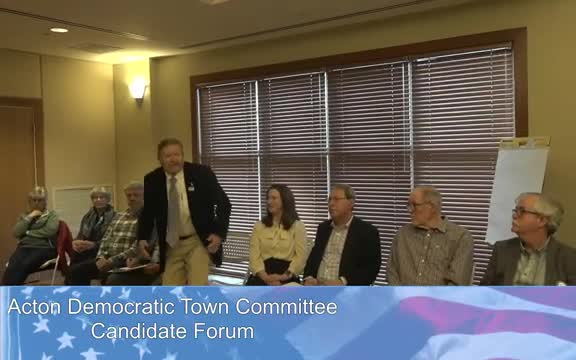Acton candidates debate $35 million public works building, finance committee concern cited
Get AI-powered insights, summaries, and transcripts
Subscribe
Summary
Select board candidates and other speakers described a proposed new $35 million Department of Public Works building, saying it addresses safety, ADA and operational problems; opponents and the finance committee have raised cost concerns ahead of a likely debt-exclusion vote.
A proposal to replace Acton’s aging Department of Public Works building and finance it with a debt-exclusion override drew sharp discussion at the candidate forum, with select board candidates saying the current facility is undersized and unsafe and that delaying construction would raise long-term costs.
Proponents said the town has already reduced the project through value engineering but still needs roughly $35,000,000 in bonding to build a right-sized facility. “The building was undersized when it was built in 1969… It currently has so many problems with it as far as [code] compliance, air quality issues,” said Dean Shatter, a Select Board member and candidate. He said the existing building’s layout causes wasted time moving equipment, and lacks facilities needed to recruit and retain certain staff.
Why it matters: Town officials said the project would be financed with a 30-year debt-exclusion note that would add roughly $250 a year to an average household’s tax bill. Supporters argue construction inflation and sunk design costs mean postponing the project would be more expensive over time; critics and some finance committee members worry about stacking a large new tax increase so soon after last year’s override.
Select Board candidate David (identified in forum remarks as a board liaison to the finance committee) said the project has been reduced in size and scope through multiple rounds of design cuts and that the town has spent more than $1.25 million on design to date. “If we don't move forward, we will have lost that million and a quarter dollars,” he said, adding construction inflation could push costs higher if voters delay.
Opponents and skeptical voters at the forum questioned whether alternatives to a new building were fully explored. Select Board candidate June Leslie said she favors reuse and repurposing where feasible and asked what additional studies were done to show a new building was the only option.
Candidates and supporting officials characterized the disagreement with the finance committee as an honest policy difference: select board members emphasized the operational impacts on town services and employee safety; finance-committee-aligned voices emphasized taxpayer costs and timing following a narrow override last year.
No formal vote occurred at the forum. The speakers urged voters to weigh the finance committee’s caution against the town’s stated operational needs before town meeting and the anticipated debt-exclusion ballot question.
